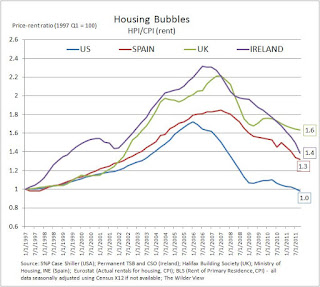Portugal, Ireland, Italy, Greece and Spain
— the countries at the centre of the 2010 to 2015 Eurozone crisis. This story of success in Greece defies all the doomsayers and hotheads of 2015, when the country briefly flirted with leaving the euro under its populist-left Syriza government. The lesson to learn from the crisis over a decade ago is the value of solidarity across Europe, enabling sovereign debts to be put on a sustainable basis with support from more financially secure countries. Conditionality attached to this support was vital, despite its political difficulty. Kicking the can down the road, as happened often from 2010 to 2015, was also necessary to foster difficult compromises. Chris Giles Financial Times 11 December 2024 https://www.ft.com/content/9ae38922-bb81-459f-83f9-2eaa4cb38fcf



